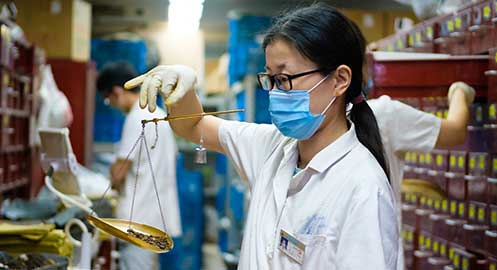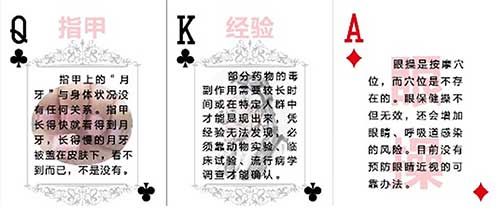Chinese activists protest the use of traditional treatments - they want medical science
In China, traditional Chinese medicine has the same status in the health system as modern medical science. This has led thousands of science activists to protest that the state neglects its duty to treat its citizens with evidence-based medicine. New research from the University of Copenhagen has investigated these protests.

In the West, the number of people challenging scientific authority has been growing in past decades. This has, among other things, led to a decline in the support for mass vaccination programmes and to an increase in alternative forms of treatment. In China, however, activists are defending modern medical science and criticising Traditional Chinese Medicine, which hospitals are obliged to offer to patients on an equal footing with modern medical care.
Over a number of years, Chinese researcher Qiaoyan Zhu, who has been affiliated with the University of Copenhagen's Department of Communication, has collected data on the many thousand science activists in China through observations in Internet forums, on social media and during physical meetings. She has also interviewed hundreds of activists. Together with Professor Maja Horst, who has specialised in research communication, she has analysed the many data on the activists and their protests in an article that has just been published in the journal Public Understanding of Science:
"The activists are better educated and wealthier than the average Chinese population, and a large majority of them keep up-to-date with scientific developments. The protests do not reflect a broad popular movement, but the activists make an impact with their communication at several different levels,” Maja Horst explained and added:
"Many of them are protesting individually by writing directly to family, friends and colleagues who have been treated with – and in some cases taken ill from - Traditional Chinese Medicine. Some have also hung posters in hospitals and other official institutions to draw attention to the dangers of traditional treatments. But most of the activism takes place online, on social media and blogs.
The activists hold the cards

Activists operating in a regime like the Chinese are obviously not given the same leeway as activists in an open democratic society - there are limits to what the authorities are willing to accept in the public sphere in particular. However, there is still ample opportunity to organise and plan actions online.
"In addition to smaller groups and individual activists that have profiles on social media, larger online groups are also being formed, in some cases gaining a high degree of visibility. The card game with 52 criticisms about Traditional Chinese Medicine that a group of activists produced in 37,000 copies and distributed to family, friends and local poker clubs is a good example. Poker is a highly popular pastime in rural China so the critical deck of cards is a creative way of reaching a large audience,” Maja Horst said.
Maja Horst and Qiaoyan Zhu have also found examples of more direct action methods, where local activist groups contact school authorities to complain that traditional Chinese medicine is part of the syllabus in schools. Or that activists help patients refuse treatment if they are offered treatment with Traditional Chinese Medicine.
Will we see similar science activism in Europe?
The Chinese style of science activism, which Maja Horst and Qiaoyan Zhu have studied, is rather traditional and fact-based compared to the often more spectacular and symbol-laden communication that Western activists use when, for example, protesting genetic research. But they conclude by anticipating a possible similar development in the West:
“We have already seen Marches for Science in the US and Europe so it is not unlikely we will begin to see more activism in favour of science and evidence-bases in our part of the world as well. We may well see a counter-reaction towards climate sceptics and anti-vaxxers who challenge established science and its results.”
Read the article "Science Communication Activism: protesting traditional Chinese Medicine in China" in the journal Public Understanding of Science.
Contact
Professor Maja Horst
Department of Communication
University of Copenhagen
Mobile: +45 20 28 68 66
Email: horst@hum.ku.dk
Qiaoyan Zhu
Wenzhou Medical University
Topics
Contact
Professor Maja Horst
Department of Communication
University of Copenhagen
Mobile: +45 20 28 68 66
Email: horst@hum.ku.dk
Qiaoyan Zhu
Wenzhou Medical University
Traditional Chinese Medicine
Traditional Chinese medicine is a generic term for a wide range of different treatment practices and traditions – acupuncture, which is also widely used in the West, and herbal medicine, are probably the best known. The activists are particularly targeting the use of herbal medicines because they do not need to comply with the same strict regulations as modern medicine and because they have seen many cases where patients have become seriously ill from the herbs.
Modern medical treatments and Traditional Chinese Medicine have the same status in the Chinese health system, but they do not have to meet the same strict documentation requirements.
